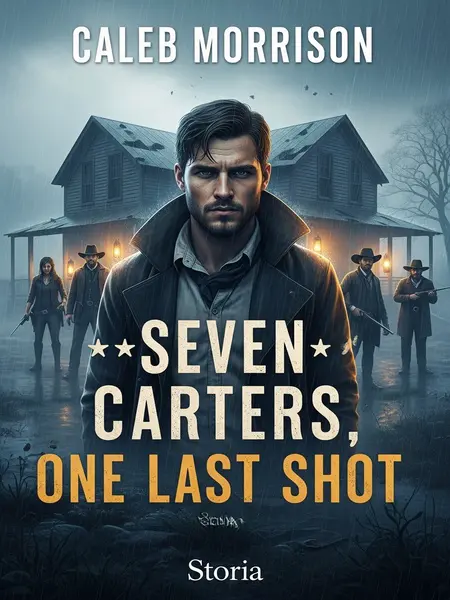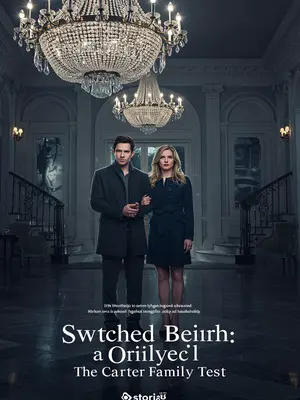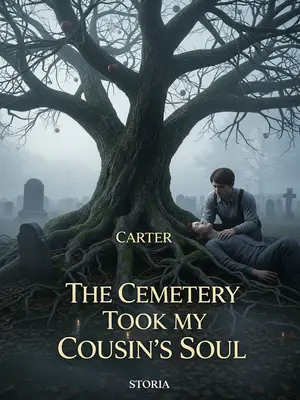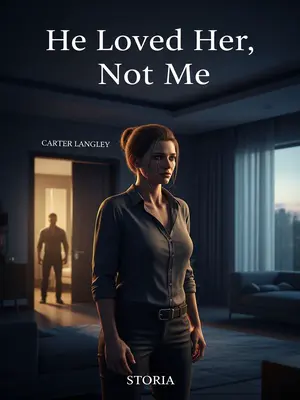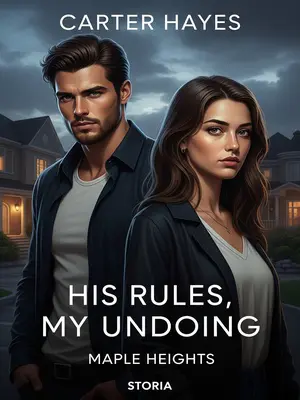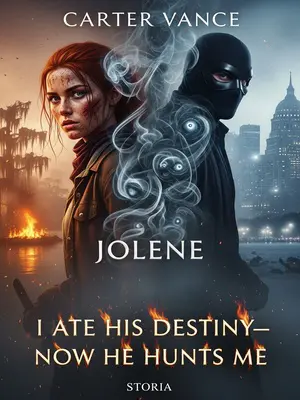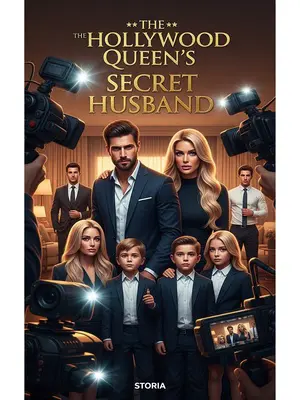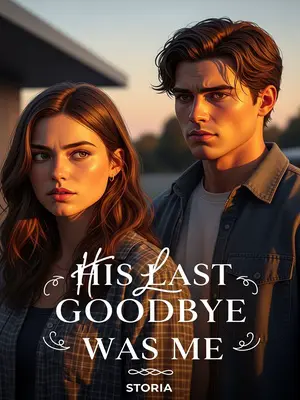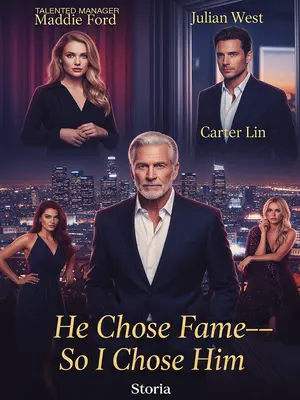Chapter 2: The Archer and the Graveyard Tiger
They called him the Graveyard Tiger. But could Caleb really come back from the dead?
He remembered the stories folks whispered at the bar, about the Morrison family’s stubborn streak and the way they never stayed down for long. But this… This was something else. Straight out of a ghost story.
Had to be a fake. He’d test him.
Samuel grinned, sharp and cold. “Let’s see what you’ve got, pretty boy.”
A hundred bikers. Quinn didn’t blink. He sent a hundred bikers up front to meet them, but Quinn Carter stayed cool.
Engines revved, lights glaring. Quinn stayed cool. Quinn didn’t flinch, not even when the headlights bore down on him. He just drew a deep breath, shoulders squared, eyes locked on the oncoming gang. Will gripped the dashboard, ready to leap out at a moment’s notice.
He drew, fired, drew again. Arrows flew. He drew his bow and let arrows fly like lightning. Even as they pulled back, he picked off bikes and riders, throwing the gang into chaos.
Every shot hit home. The arrows whistled through the air, each one finding its mark. Tires blew, engines sputtered, and riders tumbled into the dirt. The gang scattered, cursing and ducking for cover. Will whistled low, impressed despite himself.
Will let out a low whistle. Even the state fair legends couldn’t top that. He started to respect him.
He remembered the old stories about carnival sharpshooters and state fair trick shots, but none of them held a candle to what Quinn was doing now. Will felt a grin tug at his lips—maybe they actually had a shot.
No one wanted to be next. The rival gang, seeing that deadly aim—whoever he pointed at went down—didn’t dare get close.
They hung back, engines idling, eyes wide with fear. The bravado faded fast, replaced by a wary respect. No one wanted to be the next target.
He wasn’t the councilman, but he was the real deal. Samuel realized this man only looked like Caleb. He wasn’t the councilman, but his skills were real.
He cursed under his breath, realizing he’d underestimated his opponent. Whoever this was, he wasn’t just a lookalike—he was a force to be reckoned with.
Four, five days. Quinn kept coming. For four or five days, Quinn Carter kept showing up to provoke them, but the rival gang just hunkered down and didn’t come out.
Every morning, Quinn’s arrows would find their mark, picking off supplies or sabotaging bikes. The gang grew restless, nerves fraying with each passing day. Samuel paced his tent, plotting, but nothing seemed to shake the archer.
Nothing shook the archer. On the fifth day, Quinn Carter didn’t show. Samuel knew something was up.
The camp was eerily quiet, the usual taunts and arrows absent. Samuel’s gut twisted—he didn’t trust this sudden peace.
No arrows. No taunts. Something was up. He ordered his crew to move in, only to find the Morrison camps deserted—the whole group had already pulled out.
Bootprints in the mud, coffee burnt to the bottom of the pot. Tents stood empty, fire pits cold. Not a trace of the Morrison crew remained, save for a few muddy bootprints and the lingering scent of burnt coffee. Samuel’s men kicked at the ashes, cursing their luck.
Duped. Again. Samuel cursed himself for being duped, but there was nothing he could do.
He slammed his fist into a fence post, teeth grinding in frustration. Outmaneuvered, again. The only thing left was to lick his wounds and hope for another shot down the line.
Seven tries. Seven failures. Caleb withdrew with his crew back to Silver Hollow, thinking of his seven failed campaigns to win back Maple Heights, all ending in defeat.
Maybe next time. The ride home was quiet, the truck rattling over potholes. Caleb stared out the window, lost in thought. Seven tries, seven failures. The taste of defeat was bitter, but he couldn’t shake the stubborn hope that maybe, just maybe, the next time would be different.
He was tired. So damn tired. He let out a deep sigh.
A voice cut through the gloom. Just then, another Carter stepped forward, dressed way differently than the rest.
Patched jeans, faded cap, two drooping mustaches—he looked like a storybook character. This one looked like he’d just wandered in from a roadside flea market—patched jeans, a faded baseball cap, and a pair of drooping mustaches that made him look like a character out of a tall tale. His hair was buzzed in front and back, with a ponytail trailing like a forgotten ribbon.
Buzzed front and back. Ponytail trailing. The kind of haircut you got on a dare. He wore a battered baseball cap, sported two drooping mustaches, and had an odd hairstyle: the front and back of his head were buzzed clean, with a long ponytail trailing down the back.
Caleb almost laughed. Almost. He twirled a pencil behind his ear, glancing up from a stack of receipts. Caleb raised an eyebrow, trying not to laugh. The guy looked like he’d lost a bet with a barber.
Not his style, but now wasn’t the time. Caleb didn’t care for the look.
The guy barely slept, lost in his ledgers. Let’s call him York Carter for now. This Carter spent the whole trip poring over financial ledgers and food receipts, barely stopping to sleep.
Every so often, he’d mutter about overhead. Or margins. Like the fate of the county hinged on beans. York scribbled notes on the back of an old envelope, lips moving as he calculated costs. He seemed oblivious to the chaos around him, lost in a world of numbers and dollar signs. Every so often, he’d mutter something about "overhead" or "margin," as if the fate of the county depended on the price of canned beans.
Less a bow, more a baseball signal. He half-knelt, half-stood, did a little ritual before Caleb, and said, “Boss, your seven tries at the county fair failed because you ran out of supplies. I might not look it, but I have a few ideas.”
He grinned, eyes bright. “I’m a mess, but I know budgets.” York’s ritual was less a bow and more a nervous shuffle, like a baseball coach signaling from third base. He tapped his chest twice, then pointed at Caleb, grinning sheepishly. “I know I look like a mess, but trust me, I know my way around a budget.”
Maybe this oddball was onto something. Caleb thought he made sense and asked, “What do you suggest, Carter?”
Fourth son. Numbers guy. The man replied, “I’m the fourth son in my family, and I love crunching numbers and cleaning up the books. Boss, hear me out…”
He sketched charts in the air, talking a mile a minute. York’s eyes lit up as he launched into his pitch, hands flying as he sketched charts in the air. “I’ve balanced more checkbooks than most folks have had hot dinners. Let me show you what I can do.”
By the time Caleb finished his coffee, York had a plan. In the time it took to finish a mug of black coffee, this man broke down the pros and cons of appointing new staff, land surveys, household registration, and more, one by one.
Food, trucks, trains—he had it all covered. York talked fast, but every word made sense. He outlined a plan for tracking supplies, rotating staff, even suggested a new system for keeping tabs on every household in town. Caleb listened, nodding along, the bitter taste of defeat slowly fading into something like hope.
Sketchy as hell, but sharp. York rattled off numbers—how many pounds of beans went missing last winter, how much fuel could be saved if they rerouted shipments through the old rail yard. He even had ideas for bartering with neighboring towns. Caleb found himself scribbling notes, his mind racing with possibilities.
